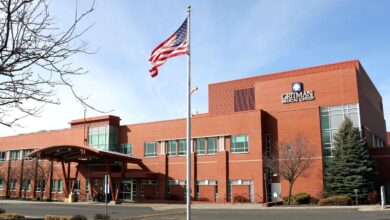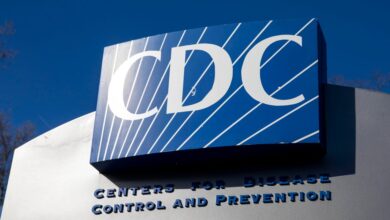Pope Francis’ cause of death was stroke and irreversible heart failure, Vatican says

Pope Francis, the beloved Catholic leader, passed away on Monday at the age of 88. His death follows a series of health challenges that he had been battling in recent years. The Vatican confirmed that Francis died at 7:35 a.m. at his residence due to a cerebral stroke, coma, and subsequent irreversible heart failure.
Throughout his papacy, Pope Francis faced numerous health issues, including respiratory illnesses, knee injuries, and falls. He had part of one lung removed in his youth, which made him more susceptible to respiratory problems. In the winter of 2025, he was hospitalized for five weeks with double pneumonia. In July 2021, he underwent intestinal surgery, followed by hospitalizations for bronchitis, intestinal scar tissue removal, and hernia repair in the subsequent years.
In early 2025, Francis was diagnosed with bronchitis, which led to hospitalization and further complications. He developed bilateral pneumonia, experienced kidney failure, and suffered from acute respiratory failure. Despite these challenges, he showed signs of improvement and was eventually discharged from the hospital after five weeks of treatment.
Dr. Sergio Alfieri, the head of Pope Francis’ medical team, revealed in an interview that the pontiff had come close to death on two separate occasions during his hospitalization. The medical team even considered letting him die at one critical point when he experienced a severe breathing crisis after inhaling his own vomit. However, Francis persevered and was able to return to his home at the Vatican.
Pope Francis’ death has left a void in the hearts of millions around the world who admired his humility, compassion, and dedication to social justice. Despite his health struggles, he continued to inspire others with his words and actions until the very end. His legacy will live on in the hearts of those who were touched by his kindness and wisdom. Pope Francis experienced what can only be described as “the worst” day of his 38-day hospitalization, according to Alfieri, a spokesperson for the Vatican. The pontiff, who had undergone surgery for a colon problem, faced a setback that caused concern among his medical team.
The Associated Press and Anna Matranga contributed to this report, shedding light on the gravity of the situation. The pope’s health had been closely monitored since his surgery, with updates provided regularly to the public. However, this particular day marked a turning point in his recovery process.
The medical staff attending to Pope Francis worked tirelessly to address the complications that arose, ensuring that he received the best possible care. Despite the challenges he faced, the pontiff remained in good spirits and expressed gratitude for the support and prayers he received from around the world.
As news of the setback spread, well-wishes poured in from all corners of the globe. People of various faiths and backgrounds came together to offer their thoughts and prayers for the pope’s speedy recovery. The outpouring of support served as a source of strength and encouragement for both the pontiff and his medical team.
Sara Moniuszko, a health and lifestyle reporter at CBS News, highlighted the resilience and determination displayed by Pope Francis throughout his hospitalization. Despite facing obstacles and setbacks, he remained steadfast in his faith and commitment to serving others.
In the days that followed, the pope’s condition gradually improved, thanks to the dedication and expertise of his medical team. Alfieri expressed optimism about the pontiff’s recovery, noting that he was responding well to treatment and showing signs of progress.
As the world continued to monitor Pope Francis’s health journey, the importance of faith, hope, and resilience became apparent. The pontiff’s unwavering spirit and the outpouring of support from people worldwide served as a reminder of the power of unity and compassion in times of adversity.
In conclusion, Pope Francis’s hospitalization was a challenging and trying time, but it also brought people together in a display of solidarity and support. The pontiff’s resilience and the dedication of his medical team shone through, offering hope and inspiration to all who followed his journey. The worst day of his hospitalization ultimately became a testament to the strength of faith and the healing power of community.




